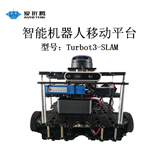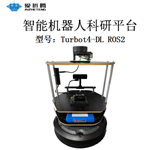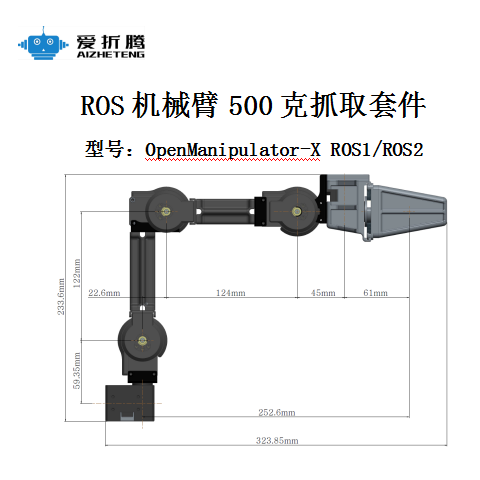ROS2与C++入门教程-多线程演示
ROS2与C++入门教程-多线程演示
说明:
- 介绍如何在ros2的rclcpp中使用多线程。演示一个线程用于发布话题,一个线程的订阅话题
步骤:
- 新建一个包cpp_threads
cd ~/dev_ws/src
ros2 pkg create --build-type ament_cmake cpp_threads
- 进入src目录,新建文件multithreaded_executor.cpp
cd dev_ws/src/cpp_threads/src
touch multithreaded_executor.cpp
- 内容如下:
#include <chrono>
#include <functional>
#include <memory>
#include <string>
#include <thread>
#include "rclcpp/rclcpp.hpp"
#include "std_msgs/msg/string.hpp"
using namespace std::chrono_literals;
/**
* A small convenience function for converting a thread ID to a string
**/
std::string string_thread_id()
{
auto hashed = std::hash<std::thread::id>()(std::this_thread::get_id());
return std::to_string(hashed);
}
/* For this example, we will be creating a publishing node like the one in minimal_publisher.
* We will have a single subscriber node running 2 threads. Each thread loops at different speeds, and
* just repeats what it sees from the publisher to the screen.
*/
class PublisherNode : public rclcpp::Node
{
public:
PublisherNode()
: Node("PublisherNode"), count_(0)
{
publisher_ = this->create_publisher<std_msgs::msg::String>("topic", 10);
auto timer_callback =
[this]() -> void {
auto message = std_msgs::msg::String();
message.data = "Hello World! " + std::to_string(this->count_++);
// Extract current thread
auto curr_thread = string_thread_id();
// Prep display message
RCLCPP_INFO(
this->get_logger(), "\n<<THREAD %s>> Publishing '%s'",
curr_thread.c_str(), message.data.c_str());
this->publisher_->publish(message);
};
timer_ = this->create_wall_timer(500ms, timer_callback);
}
private:
rclcpp::TimerBase::SharedPtr timer_;
rclcpp::Publisher<std_msgs::msg::String>::SharedPtr publisher_;
size_t count_;
};
class DualThreadedNode : public rclcpp::Node
{
public:
DualThreadedNode()
: Node("DualThreadedNode")
{
/* These define the callback groups
* They don't really do much on their own, but they have to exist in order to
* assign callbacks to them. They're also what the executor looks for when trying to run multiple threads
*/
callback_group_subscriber1_ = this->create_callback_group(
rclcpp::CallbackGroupType::MutuallyExclusive);
callback_group_subscriber2_ = this->create_callback_group(
rclcpp::CallbackGroupType::MutuallyExclusive);
// Each of these callback groups is basically a thread
// Everything assigned to one of them gets bundled into the same thread
auto sub1_opt = rclcpp::SubscriptionOptions();
sub1_opt.callback_group = callback_group_subscriber1_;
auto sub2_opt = rclcpp::SubscriptionOptions();
sub2_opt.callback_group = callback_group_subscriber2_;
subscription1_ = this->create_subscription<std_msgs::msg::String>(
"topic",
rclcpp::QoS(10),
// std::bind is sort of C++'s way of passing a function
// If you're used to function-passing, skip these comments
std::bind(
&DualThreadedNode::subscriber1_cb, // First parameter is a reference to the function
this, // What the function should be bound to
std::placeholders::_1), // At this point we're not positive of all the
// parameters being passed
// So we just put a generic placeholder
// into the binder
// (since we know we need ONE parameter)
sub1_opt); // This is where we set the callback group.
// This subscription will run with callback group subscriber1
subscription2_ = this->create_subscription<std_msgs::msg::String>(
"topic",
rclcpp::QoS(10),
std::bind(
&DualThreadedNode::subscriber2_cb,
this,
std::placeholders::_1),
sub2_opt);
}
private:
/**
* Simple function for generating a timestamp
* Used for somewhat ineffectually demonstrating that the multithreading doesn't cripple performace
*/
std::string timing_string()
{
rclcpp::Time time = this->now();
return std::to_string(time.nanoseconds());
}
/**
* Every time the Publisher publishes something, all subscribers to the topic get poked
* This function gets called when Subscriber1 is poked (due to the std::bind we used when defining it)
*/
void subscriber1_cb(const std_msgs::msg::String::ConstSharedPtr msg)
{
auto message_received_at = timing_string();
// Extract current thread
RCLCPP_INFO(
this->get_logger(), "THREAD %s => Heard '%s' at %s",
string_thread_id().c_str(), msg->data.c_str(), message_received_at.c_str());
}
/**
* This function gets called when Subscriber2 is poked
* Since it's running on a separate thread than Subscriber 1, it will run at (more-or-less) the same time!
*/
void subscriber2_cb(const std_msgs::msg::String::ConstSharedPtr msg)
{
auto message_received_at = timing_string();
// Prep display message
RCLCPP_INFO(
this->get_logger(), "THREAD %s => Heard '%s' at %s",
string_thread_id().c_str(), msg->data.c_str(), message_received_at.c_str());
}
rclcpp::CallbackGroup::SharedPtr callback_group_subscriber1_;
rclcpp::CallbackGroup::SharedPtr callback_group_subscriber2_;
rclcpp::Subscription<std_msgs::msg::String>::SharedPtr subscription1_;
rclcpp::Subscription<std_msgs::msg::String>::SharedPtr subscription2_;
};
int main(int argc, char * argv[])
{
rclcpp::init(argc, argv);
// You MUST use the MultiThreadedExecutor to use, well, multiple threads
rclcpp::executors::MultiThreadedExecutor executor;
auto pubnode = std::make_shared<PublisherNode>();
auto subnode = std::make_shared<DualThreadedNode>(); // This contains BOTH subscriber callbacks.
// They will still run on different threads
// One Node. Two callbacks. Two Threads
executor.add_node(pubnode);
executor.add_node(subnode);
executor.spin();
rclcpp::shutdown();
return 0;
}
- 编译package.xml
- 在<buildtool_depend>ament_cmake</buildtool_depend>后增加
<depend>rclcpp</depend>
<depend>std_msgs</depend>
- 编译CMakelist.txt
- 在find_package(ament_cmake REQUIRED)后增加
find_package(rclcpp REQUIRED)
find_package(std_msgs REQUIRED)
- 在增加可执行文件,ros2 run能够调用的名称
add_executable(multithreaded_executor src/multithreaded_executor.cpp)
ament_target_dependencies(multithreaded_executor rclcpp std_msgs)
- 增加可执行文件位置,ros2 run可以找到这个可执行文件
install(TARGETS
multithreaded_executor
DESTINATION lib/${PROJECT_NAME}
)
- 安装相关依赖
cd ~/dev_ws/
rosdep install -i --from-path src --rosdistro galactic -y
- 编译包
colcon build --symlink-install --packages-select cpp_threads
- 加载工作空间
. install/setup.bash
- 执行
ros2 run cpp_threads multithreaded_executor
- 效果如下:
$ ros2 run cpp_threads multithreaded_executor
[INFO] [1651808341.560346425] [PublisherNode]:
<<THREAD 14073912263493022284>> Publishing 'Hello World! 0'
[INFO] [1651808341.560782457] [DualThreadedNode]: THREAD 12781006303109063165 => Heard 'Hello World! 0' at 1651808341560771372
[INFO] [1651808341.560981750] [DualThreadedNode]: THREAD 14073912263493022284 => Heard 'Hello World! 0' at 1651808341560970655
[INFO] [1651808342.060389617] [PublisherNode]:
<<THREAD 17356008714308031491>> Publishing 'Hello World! 1'
[INFO] [1651808342.060738294] [DualThreadedNode]: THREAD 6975958009959714317 => Heard 'Hello World! 1' at 1651808342060725810
[INFO] [1651808342.060783434] [DualThreadedNode]: THREAD 17356008714308031491 => Heard 'Hello World! 1' at 1651808342060772314
[INFO] [1651808342.560456090] [PublisherNode]:
<<THREAD 1791470884547062228>> Publishing 'Hello World! 2'
[INFO] [1651808342.560708367] [DualThreadedNode]: THREAD 14073912263493022284 => Heard 'Hello World! 2' at 1651808342560696566
[INFO] [1651808342.560833530] [DualThreadedNode]: THREAD 1791470884547062228 => Heard 'Hello World! 2' at 1651808342560818497
[INFO] [1651808343.060426560] [PublisherNode]:
<<THREAD 520078779124681865>> Publishing 'Hello World! 3'
[INFO] [1651808343.060688311] [DualThreadedNode]: THREAD 15999819906855827312 => Heard 'Hello World! 3' at 1651808343060675877
[INFO] [1651808343.060711107] [DualThreadedNode]: THREAD 520078779124681865 => Heard 'Hello World! 3' at 1651808343060702653
[INFO] [1651808343.560402444] [PublisherNode]:
<<THREAD 14603931345993028093>> Publishing 'Hello World! 4'
[INFO] [1651808343.560678334] [DualThreadedNode]: THREAD 6975958009959714317 => Heard 'Hello World! 4' at 1651808343560664444
[INFO] [1651808343.560690455] [DualThreadedNode]: THREAD 14603931345993028093 => Heard 'Hello World! 4' at 1651808343560681564
[INFO] [1651808344.060394028] [PublisherNode]:
<<THREAD 17356008714308031491>> Publishing 'Hello World! 5'
[INFO] [1651808344.060664727] [DualThreadedNode]: THREAD 520078779124681865 => Heard 'Hello World! 5' at 1651808344060649093
[INFO] [1651808344.060727468] [DualThreadedNode]: THREAD 17356008714308031491 => Heard 'Hello World! 5' at 1651808344060718433
参考:
- 资料1
获取最新文章: 扫一扫右上角的二维码加入“创客智造”公众号



















